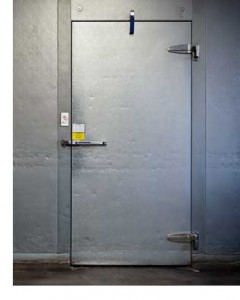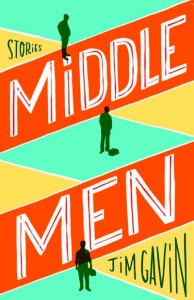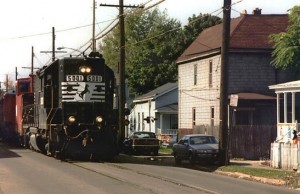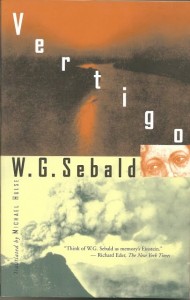 Through the thin light that waxed before dawn, layers of creosote on the railroad ties painted them a lumpy lavender hue. They served as our narrowly spaced steps, underlines bolded in the lingering gray of night. We always trekked over them to cross the suspension bridge above the river while trying to spot the grain of dark water moving below us.
Through the thin light that waxed before dawn, layers of creosote on the railroad ties painted them a lumpy lavender hue. They served as our narrowly spaced steps, underlines bolded in the lingering gray of night. We always trekked over them to cross the suspension bridge above the river while trying to spot the grain of dark water moving below us.
It proved a good test of our balance-versus-hangover ratios, one last sobriety measure before we left the train tracks to finish our walk to Mercy Hospital in Durango, Colorado. Our shift there began at 5:30 a.m. We were dietary aides. We knew nothing about diet.
Durango lies on the edge of the San Juan Mountains where they give way to desert in the south and west. This was about a year ago, give or take. Sometimes, I wish it felt longer ago, or that I had the money to go back to school, or that I’d just gone somewhere else and started over by now. Easy come, easy go, that’s the style now. But, I’ve stopped giving a damn about what the style is, and I can’t think of another place to go, anyway.
My roommate Jake and I had finally made it into a house, a decent one at that, five bedrooms and two baths on a corner lot less than a mile from the hospital. It was a brick two-story with a small front yard cradled by a wooden picket fence that Jake and I joked we would paint a gleaming white as soon as spring broke. We never did. I’ve got no reason to frequent that part of town anymore, but, last I’d seen, a family of four was living in the house and they had stained the fence a golden walnut. Both developments are an improvement for the neighborhood.
We had three roommates that put the rent in reach for us. Upstairs tenants Dan and Felix preferred to remain upstairs, so much so we used to think they would have used a dumb waiter to exit the house rather than pass through our first-floor quarters had the option been available. Occupying the lone bedroom on east side of the first floor, Izzy tolerated us, as well as her live-in boyfriend, Wild Bill, another drunk like us.
Jake and I had just moved from separate rooms at a hotel above a bar with one bathroom per floor that was often occupied by fornicating drunks at moments of your necessity. Before that, we lived for almost two years in a trailer with one working electrical outlet and no running water. Snowfall leaked through the roof onto the carpet during the days and froze into an icy crust at night. When it came to lodging, at least, we were moving up in the world.
A front had moved in on this particular morning and the sky would not brighten much beyond the fleshy olive tone of dawn the rest of the day. Faint red light from the tree in the hospital lobby hung a foot outside the windows in the crisp air. It was 10 days before Christmas. We were still woozy with tequila after an hour or two of sleep the night before. A mix of Indians and nurses had come by and aided us in a kind of loosely defined Christmas party. The college in town granted free tuition to the surrounding Native American nations, many of whose fine members we drank with in dive bars or attended classes alongside when we could afford to enroll for a semester. We had coaxed the nurses over with a promise of a dinner that never materialized into more than salsa and chips, beer and tequila. At some point in the evening, we also had broken some windows, perhaps in a primitivist homage to our trailer park icebox. The official hospital Christmas party was tomorrow, a Friday, the first of our two days off.
“Drink some juices, jovenes,” said Delfina, one of the older Mexican women cafeteria servers who did her best to look after Jake and me. Tulia, who was carrying out a metal tray of scrambled eggs from the kitchen, her big arms and shoulders encasing her deep-set eyes like a tortoise shell, glanced at our entrance and turned her tiny head side to side. Besides their webbed hairnetting and the puff powder blue hairnets that we wore, there wasn’t a huge difference between cafeteria workers and dietary aides. They were managed by Cassandra, the blonde Patient Services supervisor I often daydreamed about while waiting for hospital staff to come through the breakfast line. The more-serious Sonya was our boss. Both women were in the late 20s, seven or eight years our seniors.
We retreated from the fluorescent lights and stainless steel surfaces of the serving area to the cooler, less bright part of the kitchen where we filled the orders for patient meals. This was the primary task of our jobs and a perfect one to ease gently into the day. You usually didn’t speak to anyone and many of the meals for diets that rarely changed had already been assembled on their trays and placed in the metal racks by the cafeteria staff. You filled breakfast orders, and later, lunch and dinner orders. The rest of the time you helped out in the cafeteria. There was no heavy lifting, no dishwashing, no dangerous cleaning solvents to inhale. There were nurses around you every day. Our bosses were young, cool and attractive. Many worse jobs existed.
I had not told anyone that I worked at the hospital before, not even Jake. As an itinerant construction worker I’d hitchhiked into town and found a spot with a crew working on the newest wing of the hospital. This was after I dropped out of college back east. I didn’t tell anyone because I think I wanted to develop a new relationship with the place. I didn’t want to jinx it with my past as an under-the-table worker who still hadn’t paid taxes on the money he’d earned there before.
“Ready for your weekend, Joseph?” asked Cassandra, smiling warmly.
I liked that she used my full name, the formality of it coming from her ample lips made me sound older. But she’d surprised me. Cassandra didn’t usually venture into the kitchen until at least 6 a.m., and I hadn’t put on my hair protector yet. I felt the haircap set off my eyebrows and eyelashes nicely, and I was learning you needed to use everything you had in this life, every last brow and lash. I was also a bit self-conscious of my matted, unwashed hair.
“Always, Cassandra,” I said, trying to position the elastic band of the cap so as to expose a fetching portion of forehead without the help of a mirror. “Are you going to the party?”
“Of course.”
“Great. I’ll see you there then.”
“Yes you will.” The smile again.
A cackle pierced the skin of dawn just after Cassandra disappeared down the white corridor that led to her office. Lalo, the frizzy-haired chubby chef, was standing with the cooks and laughing loudly at his own jokes. I could tell already that he was drunker than Jake and I. If it was possible for someone to arrive at work looking worse than we did, Lalo had done it. His hair extended like an afro on one side but was mashed flat on the other side where he had obviously slept on it, and there were two horizontal black streaks where the whites of his eyes normally lit.
We turned our backs and hid ourselves in our work. We liked him but it was still too early for Lalo.
“Whazzzzup, guys?”
He spotted us through the food racks.
“You guys party last night?”
“A little bit, Lalo,” said Jake.
“It’s Christmas, right, eh? Feliz Navidad. I got something to show you guys later.”
“Ok. Later Lalo.”
He had some seniority at the hospital but Lalo was not a favorite of Cassandra and Sonya’s. Though harmless, he could make them both uneasy at times. He had entrenched his own brand of kitchen etiquette in the cafeteria, which included staging regular hot baked potato tosses among the cooks, stringing together and wearing necklaces made of garlic, and refusing to scale back the use of jalapeno peppers from recipes. He complied with supervisors’ requests to change this behavior only to forget about them a month later.
Unlike Lalo, Cassandra and Sonya were always put together well every day, never a loose thread, misapplied makeup stroke or bag under an eye. But they looked like they liked to have fun, too, especially Cassandra. Maybe they had mastered the art of self control, I thought. But, hadn’t the most successful serial killers done that also? I could never fully envision a scenario where I was dating Cassandra, no how matter I wished things would progress there, while Jake carried no illusions at all about dating Sonya. He was single-minded. “Sonya,” he would sing over and over ad nauseam, “I don’t wanna own ya’/I just wanna’ bone ya’.”
The day I met Jake he was jumping barefoot from a second-story dorm window onto a steel grate below him. From a far distance it looked like someone pushing a sausage link through a grinder and then chopping it. Up close, I could see he wore nothing over his flushed skin but faded cutoff jeans that threatened to slide down past his hips.
I had decided to give college another try, this time out west, after a stretch of fizzled-out construction projects, unemployment and menial jobs. I watched him jump three times – stumbling to his feet, running inside the dorm and back up the stairs to his window, summiting the ledge and jumping again But I had no knowledge of how long he’d been at it before I’d arrived on the scene to check into my dorm room.
I had just been released from several days in jail for getting into a shouting match and near fight with a man who turned out to be an off-duty state trooper. After four days sharing a cell with a rather large inmate awaiting a first-degree manslaughter trial in Illinois, I got released on the weekend before classes began. The jumping man, if he was indeed real and not an apparition, seemed a truer representative of the world than the volleyball keg parties that stretched out across the campus greens.
I stood there with both palms on the small of my back and watched him jump. There was an obsessive-compulsive determination to it, as if S.W.A.T. Team testing or a circus record were at stake. Not too many minutes later I discovered we had been assigned the same room. Window jumpers trumped manslaughterers on almost any roommate scale, I reasoned. The next day, he was the first person I had ever seen with bruised heels.
Jake had not pulled a stunt like window jumping in a while. But if he still didn’t care much one way or the other about what happened to him, I wanted to know, for selfish reasons. It paid to avoid those who did not care much about what happened to others, those buttoned faces who appeared at construction sites or furniture moving jobs and vanished back into the void after their first paycheck. But it was also risky hanging out with someone who had given up caring about himself. I was hoping to avoid traveling down either path. I wasn’t doing a great job so far.
The last group of nurses had come through the cafeteria breakfast line. I had eaten a plate of bacon with an egg-and-sausage sandwich and could feel the grease lubricating neural passageways that had been dessicated into dusty creek beds from the night’s tequila. Our shift was already more than half over. We had turned off the heat lamps and carried the steam trays back to the kitchen. Now the buzzing of the overhead lights and the sweep of the empty bluish-grey tiled floor closed in, and time seemed to slacken. Jake and Lalo, the last holdouts in the cafeteria, exited for their usual smoke break.
It was not from the constant flow of people through the emergency room doors or in the regular screams of the ambulance sirens that I felt lives moving along a precipice at the hospital, but in the moments when only the faint hum of machinery could be heard absent of any human sound. My mind wandered during these break-time stillnesses.
The people who died on the floors upstairs or in the emergency room every day could never poke holes in the silence that had drowned them again. I felt in a way that the wave frequencies of the machines did that for them, in the gentle surges through the refrigerator coils, the gurgle from the Hobart dishwasher in back, the lights’ soft buzz or the hiss of automatic doors down the hallways one by one by one. Framed by the quiet, they transmitted the mechanical traces of life leaving bodies. No matter how badly we needed to believe it was, death could never fully be human. And only if death were both human and impersonal could our days feel consequential, even if they were spent doling scrambled eggs onto plates with an ice cream scooper. It was a neat trick I was discovering we all learned to play on ourselves to some extent. Some people never walked away from this building again, while we ambled home across the railroad viaduct every day. That, somehow, was destiny.
“Hey Joe,” Lalo said, breaking up my daydreaming with a mocking deep-toned, authoritarian voice.
He was standing at the entrance to the kitchen, smiling and waving me over as if he had a secret, his brow raised just enough to reveal the suggestion of the whites of eyes. I walked over and he immediately punched my arm, whisked over to the walk-in cooler and cranked open the metal door.
“Quick, before anyone comes by.”
Inside, Jake was sitting on an upturned 5-gallon bucket.
“Not my idea,” he shrugged.
Lalo walked back to the shelf where the wine for the patients was stored, pulled out three stryofoam cups from the pocket of his apron and filled them with Merlot.
“Here you go,” he said, handing us the cups. “Don’t worry, they never notice.”
We drank. Lalo gestured to another bucket for me to sit on and leaned his back against a stack of wooden palates.
“Been killing it for three days, mis amigos. I think I need to skip the party tomorrow and dry out.”
“All that free food and booze?” said Jake. “I can’t miss out on that.”
“Or Cassandra and Sonya in dresses,” I added. “Speaking of them, do you think they’re wondering where we’re at yet or why they can hear vegetables talking in the walk-in freezer?”
“Speak for yourself. We’re just taking our break,” said Jake. “In the walk-in.”
“Hey I’m not saying for you two to make this a regular, you hear? But when you really need it, it gets you right again. Got me?”
“Gotcha, only when you need it,” I said. “But I don’t think I need any more now. Thanks Lalo”
“It’s no problem.” He collected our cups, screwed the top back on the bottle and was putting it back on the shelf when the door ratcheted open.
“What are you guys doing in here?” said Cassandra, her usually smooth brow creased and ridged.
“We’re just chillin’ out, Cassie,” said Lalo.
“Were you guys smoking pot or drinking in here?” she asked and directed her button nose from side to side as if trying to detect smoke.
“Noo. Nooo. Just sitting in here, it’s good for the muscles.”
“What?!”
I had no idea where Lalo came up with this one, either.
“There better not be any wine missing. Let’s go now, guys, break is over.”
I remember thinking I was glad Lalo was closer to the wine when Cassandra came in, if and when they found the wine missing, and, also, “Wouldn’t most managers check on such a thing if the people of interest arrived at work smelling like liquor 10 out of 10 workdays?”
But then, why jump to conclusions already. Instead, I tried visualizing us at the Christmas party tomorrow, raiding the potluck food, drinking free wine, exchanging clean jokes among the old cafeteria workers and dirty ones among ourselves. Things could be worse. If it had been Sonya instead of Cassandra, she would have never let us walk out of the walk-in without running us through our steps, searching the area where the wine was, examining our lips for wine stains, maybe even smelling our breath. This was an extremely dumb idea, even for us – even for Lalo! – but maybe Cassandra would let it go. I didn’t know that soon it was not going matter much if she did.
We both feigned shock at returning home from our shift under the wan early afternoon sky to discover Dan and Felix taping up windows outside. They had regretted allowing us to move in for several months but, unlike Bill, we had money now and made rent on time.
“You guys are going to pay for these,” yelled Dan.
“What the hell happened?” I tried asking with as much indignation as I could gather.
Through the unbroken kitchen window gleamed the bald sides of Wild Bill’s head, divided by his “Taxi Driver”-styled strip of shorn hair. He was watching our exchange with Dan and Felix and smiling or laughing, it was hard to tell which with the window glare. When he was 14, Bill had followed the footsteps of his older brother and left Los Angeles, hitching across the West. He had also followed his brother straight into crank drunkenness, though he was not homeless like his brother yet. He was living with us, or off us, or more accurately, off Izzy.
When not hanging out in our house, Wild Bill stayed with a couple who had fled the dried-up mining town where they were born to search the Southwest for work. They had a five-year-old son named Henry who Bill sometimes looked after if the couple needed to go out. One afternoon Bill decided it was a good day to teach Henry how to drive a car and shoot a shotgun. He tied a wood block on top of the gas pedal of the couple’s seldom-used old pick-up truck, sat Henry between his knees and, as Bill described it to us, they began navigating the home’s property on the outskirts of town together. Henry could see little of the patch of land he steered over and nothing of it when he stretched his leg down to push the gas. The joyride complete, they discovered a watermelon in the refrigerator. Bill brought out the shotgun and perched the melon out on a plastic milk crate in the yard. He positioned the butt of the rifle against the exterior wall of the house: “Okay Henry, put one hand here on the stock. I’ll hold it with you,” he told him. “Put your finger here on the trigger. Now, pull it!”
The parents were none too pleased when they began to piece together bits of watermelon and other stray details of that afternoon, but Henry referred to it as “the funnest day ever.”
Waking from a post-shift nap, I shuffled to the kitchen and saw snowflakes sputtering down outside in the graying light. I hoped to locate a stray beer in the fridge and instead found a freshly broken 12-pack and two full cases of Schlitz tall boys. I heard another voice besides Bill’s coming from the living room. Jack was still asleep. Izzy was likely working her day shift at a restaurant, and this was a male voice, anyway.
I glanced outside again and spotted a green Nova curbside. Weird Eddie, I thought immediately. I knew him only from our meeting at a couple of parties, but I remembered Bill mentioning the repainted green Nova with the police cherry still on top and telling me about Weird Eddie, or Special Ed, as he also referred to him.
Weird Eddie was an L.A. transplant, too. He drove an old Los Angeles Police Department car with a row of beacon lights on the roof, scraped and repainted before it could be legally sold so as to prevent people like Eddie trying to impersonate police officers. Using the beacon lights for the same purpose was also illegal.
As I peered around the corner past Bill picking through a pile of albums, I recognized Eddie’s slack-jawed face. He had weakly wavy blond hair that had been permed no too long ago. His mouth was hanging open and, at a distance, his face looked vacant of potential for any expression. Up close, one could detect a faint smile in his deep-set eyes. But I wasn’t ready to get close and socialize. I carried the Schlitz back to bed with me.
He had never owned a license but Bill liked driving and was especially bad at it. The fact that a car was sitting outside, with newly falling snow that made conditions ideal for the “donuts” he loved to spin, might get he and Eddie out of the house, I hoped. The light closed in around me in my room as I began to sink toward sleep again. I was happy to be in my warm bed, away from the little party brewing in the living room. Twenty more minutes of sleep and I could still make the happy hour buffet at the Holiday Inn that Jake and I frequented out of mere habit. We bought drinks now – the food was a bonus.
When we were out of work, the Holiday Inn buffet had been our dinner ticket for weeks at a time, purchased with refillable iced teas. We always sat at the round black-vinyl topped bar and tried to avoid eye contact with the few patrons also there for their dinners. We depended on each other like undercover police plants. No one wanted to blow the cover of anyone else. Buffet offerings were disappearing all over town one by one, and, like good cops, we needed to track down our targets before they got away. We tipped the bartenders and learned to arrive after the manager left for the day. It is not bending the truth to say that chips and salsa, chicken wings, and cheese and crackers can taste fresh every day when they comprise your only meal.
Now that I had spending money again, I often searched in vain for something to spend it on besides booze. It was like freshman year in high school repeating again. You searched for examples on how to navigate the new circumstances.
Loud talking over music finally roused me. I walked out to the living room and joined the party. Izzy had passed out slumped on the brown love seat with her legs crossed and an unlit cigarette in her fingers. Bill and Jake were bickering over whose turn it was to choose the next record. Three empty bottles of whiskey sat on the floor near the love seat. I suddenly realized I was ravenously hungry.
“What time is it?”
“Almost four,” said Jake.
“What? Why didn’t anyone wake me up, I’m starving.”
Weird Eddie still sat in the same seat wearing the same blank face.
“We’re gonna go for a drive,” he said. “I want to see the sights.”
He had not been in town for that long of a time. It was difficult to know if he was kidding. I would learn this was normal with him.
“It’s dark out,” I said.
He glanced out the window behind him as if, like me, he was just realizing it was night. He turned around, took a puff of his cigarette and quickly looked back outside again for confirmation. I brought out a few cans from the last case of beer and started drinking.
At some point in the night, Bill, absent of a high school degree, had convinced Eddie of the charms a college campus has to offer. Bill had never shown any desire to visit the campus before.
“We need you college vets as chaperones,” he said. “You’re in the vanguard.”
I tried catching up a bit more with a few swallows of whiskey. I could take an afternoon nap, I reasoned, and be fine for the hospital party. And the bonus would be that, with a nice head start behind me, I’d look like a social drinker at the party and still catch a good buzz. Delfina and the gals were great, but I didn’t look forward to making small talk with them outside of work if I had to do it sober.
Barely visible between the trees, a band of tin hung on the horizon beneath the blackness. The band slowly rose and widened until a cobalt crown took shape on top of it. Snow was visible again in the tinny light, floating down in hat-shaped chunks. At least a half foot of it was on the ground. We could hear the faint rumble of city trucks plowing on the main intersection blocks away during Bill’s flip of album sides.
Around 6:30 the four of us left Izzy sleeping and piled into the Nova with Bill driving and Eddie his clueless co-pilot. A narrow switchback road led up to the campus, which sat on a plateau overlooking the town and its backdrop of snow-covered mountains. Thankfully, Bill maneuvered the Nova up the hill in first gear and the traction held.
The campus was desolate save for a few scattered students plodding heads-bowed into the weather. The college owned a couple of pickups with plow blades but they didn’t appear to be out yet. Wind began to lift the blanket of snow on the ground up to meet what was falling from the sky.
A couple minutes of Bill motoring through the snow and Jake wondered aloud if we were on a road. I looked to my left and could see the reason we were so close to campus buildings was that Bill was driving on the sidewalk. Thirty-odd yards in front of us, a student stopped in his tracks and jumped onto the road at the same time Bill dropped the Nova hard off the curb. The student jumped back onto the sidewalk and ran to a space between two buildings. I saw him stop and look back at us after Bill crashed over the curb on the other side of the street and onto the campus open space.
Bouncing from side to side on the uneven terrain, we somehow kept accelerating. I thought Eddie might protest rather than witness Bill ruin his car. But he only ashed his cigarette out the window and gawked around like a bemused tourist. Bill slammed on the brakes and we fishtailed, sending snow up like a wave of foamy sea spray. He cranked the steering wheel more and we started spinning in circles. The car finally came to a stop after several revolutions near two flagpoles that bore the state flag and Stars and Stripes, respectively.
I looked around and did not see any other vehicles. To any onlookers the Nova would appear empty and stranded from the road, which would buy us time. The light beacon presented a symbol of authority if anyone spotted us moving inside the car, though it didn’t seem too believable that a security detail would be out inspecting the structural integrity of flagpoles during a snowstorm. I cracked open a beer, still feeling behind everyone else.
“Do you trust him to drive?” I asked.
“He’s doing fine,” said Eddie, “it’s slick out there.”
In the distance, a maintenance truck from the row of tan quonset huts on the edge of campus pulled out and began traversing the main road’s circuitous path. As it neared almost 180 degrees from where we sat, it slowed to a stop. We could see the black dot of someone’s head turn and tilt forward to look our way.
“Turn the police cherries on,” said Jake.
“They’re not wired to anything. And they say enough as they are.”
“What’s that?”
“They say,” Bill started, ” ‘All is calm, keep going down the path you are headed.’ They say, ‘We got a handle on things out here, Paulie Poindexter sitting in the school library. Continue reading.’ ”
Jake and I got out and pushed. Bill might have learned how to radically turn a steering wheel, but getting the car out of the heavy snow from a dead stop was beyond his sun-kissed California skills. We got back in and Eddie had taken over driving. He kept it in first gear and shifted up to second and third after gaining momentum. He was headed not only back to the road but, it appeared, more specifically toward the maintenance truck.
“Where you going?” I said.
I could envision us from an aerial perspective barreling ahead on a needle pointing to the due “north” of the maintenance truck as it puttered along the perimeter of a compass dial.
“Hey,” said Jake, “we want to go back to school. Sometime.”
Eddie only stared ahead, his mouth parted as if mesmerized. The truck slowed again. We had its attention. It stopped. The Nova flew off the curb a few feet in front of the truck’s bumper and Eddie cranked the wheel, sending us spinning into a small and thankfully empty parking lot just off the other side of the road.
Eddie crawled the Nova back out of the parking lot and pulled up even with the truck.
“Could be a little easier to spot the roads up here,” he said rolling down his window all the way and resting an elbow on top of the door. “We’ll see if we can get you some plows from the city up here.” Before the man could answer, Eddie climbed the curb again and chugged back in the direction we had come from, gradually building speed again.
We veered left. I spotted a small footbridge rippling the plane of snow in the distance. Eddie must have seen it, too.
“Not wide enough, Ed,” I said, “if that’s what you’re thinking.”
There were several of these hump-backed, quarter-moon-shaped bridges on campus positioned over a dry creek bed that twisted across the mesa. About half had cement foundations with wood railings and half were 100-percent wood. I couldn’t recall if the one we careened toward on the south side of the campus was wood- or cement-based. I peeked over Eddie’s shoulder and saw the speedometer needle climb over 30.
Bill and Jake let out a few whoops but I was more nauseated by the sight of the approaching bridge and its side railings that could not possibly be wide enough to fit the Nova. Maybe I still wasn’t drunk enough. I saw the upside of my academic career, even if only in comparison to its failure so far, closing down like the sky above us had over the last 24 hours.
The collision of the Nova’s front suspension and lower bumper into the front of the bridge concussed like an explosion. Before we slammed back down into the snow there was a second or two of silence as we floated through the air. It might have served as a reset button, the un-grounding and interruption of the electrical current that had powered our little bender. But at contact with the ground we kept right on plowing across the campus, past the beige quonset huts of the maintenance department, off the curb and onto the road that led down the back exit of campus.
As we headed southeast toward the closest Indian reservation – an unnecessarily long trip just to purchase cigarettes, in my opinion – I stared at the red rock outcroppings streaked in white and tried to gather perspective. A maintenance worker and a few students had seen us driving across a sidewalk, an open field and a footbridge, and likely did not record our license plate. As I learned a couple years earlier after my run-in with the off-duty state trooper, a simple description and direction were more than enough to attract a full grouping of police cars. But we’d been traveling for 15 minutes now, plenty of time for any pursuers to catch us. I relaxed into my buzz and studied the high desert passing by.
As we descended to the reservation lands, red and tan rock formations poked through the white fur like meat clinging to the bones of a giant carcass. Horizons stretched out with little in the way of a human presence interrupting them. I rested my forehead against the car window and tried to think of career opportunities for myself. They felt as simultaneously infinite and empty as the land itself.
How many hours we drank at The Perrito Malo, the bar occupying the first floor of the hotel where we once lived, proved by mid afternoon to be outside our powers of estimation. Jake guessed three, I said six, while Eddie insisted we’d only just arrived and should learn how to relax. Most of our time was spent playing pool on one end of the pool area, the other end occupied by emotionally unavailable Mexican nationals we didn’t recognize and who played the same country songs on the jukebox over and over. It was just as well. We would not have stood a chance against them in billiards or anything else. Green table felts rippled like skins on the surface of water when we tried to eyeball shots. Our games stretched on forever before someone mercifully scratched the eight ball, the only way any of us seemed capable of winning.
Looking back now, I’m still convinced it was Jake’s idea. But I don’t blame him – wherever Jake is now – because I went along with it the whole way. I hadn’t eaten since the egg sandwich over 24 hours ago. Everyone was famished.
The plan was we would all walk in together, though Eddie and Bill were not to say anything to any of our co-workers except hello unless they were spoken to first. If they were spoken to first, they were my fourth cousins from Los Angeles who were visiting for the weekend.
Tulia lived in a two-story brick bungalow on the other side of the hospital from us. The house sat on the mound of a tiny corner lot in a neighborhood of similar 1950s constructed brick homes. Apparently, hosting the Christmas party had become a tradition for her after her husband died years ago. Tulia welcomed us warmly but looked confused by our party offering of three Schlitz tall boys.
“Guys, whazzzup!” we heard before Tulia could even close the door.
“Feliz Navidad, Lalo,” said Jake.
“Come on in the kitchen, it’s where us drinkers are.”
Lalo wore white socks, black sandals, long jean shorts and a silk maroon vest over a tight green t-shirt. That he had not yet noticed our severe inebriation signaled positively, even though he was likely several drinks ahead of everyone else. Lalo and his brother Esteban stood around some chips and salsa on a small round table in the kitchen drinking beers. Everyone else congregated in the connecting dining and living rooms eating plates of sliced ham, enchilada casserole, mashed potatoes, stuffing, tamales with pork green chile, various pies and other dishes hidden from our view. Lit candles filled almost every available table and mantle space.
Jake and I looked at each other, nodded and edged into the dining room waving to everyone, hoping this weak gesture would suffice to allow us to fill our plates and crawl back to our beers in the kitchen. The stumble Jake made when his feet hit the shag carpeting sent his right hand into the middle of the green chile pot as he reached for balance. The mass of alcohol in his system deadened the burn but also helped convince him that licking his forearm was a sensible clean-up strategy. Tulia rushed to him with a towel, her tiny brow rumpled with worry and no small amount of agitation. Murmurs rose above the soft Christmas music. At least I had not spotted Cassandra or Sonya yet.
“Boys, Merry Christmas,” said Delfina, giving Jake and I each a hug as we sloshed our bodies away from our heavy leans into the kitchen counter and tried to meet her without spilling anything on our plates. “Be careful.”
“Safety is their middle name,” said Bill raising his beer toward us.
“What?”
“Never mind,” I said to Delfina, “my cousin’s new. I mean, he’s just visiting from California.”
Bill and Eddie were to get their food after Jake and I, avoiding congestion and any further mishaps around the dining table.
“Do you smoke?” I heard Lalo say lowly to Eddie. “You like to get high and have fun, vato?”
Jut then a smiling Cassandra entered the kitchen in a short red dress with a plunging neckline. It doesn’t matter now, but when I look back on it, I like to think she was smiling at me.
“Fun is exactly what we need,” shouted Eddie. “This calls for a celebration!”
Weird Eddie might have been the kind of person who refrained producing a handgun in public, say, at a at a teen’s birthday party, a baby shower, his own mother’s funeral or a hospital staff Christmas party. But he was not that kind of person. I should have suspected this from the day we’d spent together, though I was hardly thinking clearly through the alcohol myself.
Jake and I both made a grab for him from opposing sides but he moved back and waved the .38 like a wagging index finger.
“Calm down, you two, this is about having fun,” he said, casting a bit from side to side. “No one’s getting hurt, including me.”
“Put it back in your jacket now!” I scream-whispered. My ignorance of him carrying a gun was matched only by my belief its presentation could be rewound a few seconds so that it never happened.
“Now, all of us, let’s go outside! Come on you stick-in-the-muds, let’s go!” he yelled, holding the gun just above his head, and, for the first time I’d ever noticed, smiling in the right corner of his mouth.
Amid gasps and stifled hysterics, everyone filed out to the sloped front yard under the slate sky, unsure whether to gather by the wrought-iron yard lamp or hide from its weak yellow oval on the snow. Realizing we were the last two people following Eddie, it seemed wiser in the event of police to drop back to the den just off the kitchen where the liquor bottles were gathered. Whether Bill followed outside to try and control Eddie or just to be amused was no longer our concern. The two of them deserved each other, anyway.
“Now, this is how people celebrate all over the world,” we heard coming through the still-open front door. “Merry Christmas!”
The first shot boomed into the silence and echoed. Women screamed. There were at least three more, amid Eddie’s loud hooting, but by that time we’d already grabbed our coats from the bedroom. Jake snatched a tequila bottle and we went out the back door, hopped a fence into the alley and began walking home.
We didn’t see Eddie, Weird Eddie or Special Ed the rest of the night. We would later inform Wild Bill that Eddie was not welcome again at the house and that if Bill didn’t like it he could find somewhere else to live.
All the same, that Sunday walk to the hospital felt enough like approaching an inevitable sentencing.
A pallid calm had replaced the snowstorm. Barbed clusters of black trees on either side of the train tracks crowded in on us. It may have still wanted to snow but the ashy cloud ceiling felt too close.
We walked slowly. Maybe Lalo had been let go for the wine theft already. He would serve as the example, I thought, to prevent anyone inferring our terminations were caused by the actions of Eddie, our retarded cousin from California, I imagined describing him during one last chance before the human resources department, a chance we would never get.
On the bridge, I felt less sure of foot. As we de-bridged and headed for the hospital entrance we stopped.
“This is gonna suck,” I said.
“More than getting up and going to work at 5 a.m. everyday?” said Jake.
“I don’t think we’ll need to worry about that option much longer.”
“Sonya, I don’t wanna own ya,” he groaned, but didn’t finish.
Jake and I drank the bottle of tequila we stole from the party but I still was unable to find solid sleep during the night. At some point nearing the time to get up for work I fell into a kind of restless half dream. Weirdly, I saw Cassandra and I together for the first time.
There were the two of us waking up to go to work at the hospital, getting in a giant black SUV and leaving our house, which was this kind of weird brick A-frame. I was wearing a dark suit and she had on a yellow dress. We were both some kind of administrators, though she was higher up than I and sat on the hospital board. We walked through the same back door entrance Jake and I used. Then we followed down our own paths through the maze of white hallways.
It was quite a future I was going to be missing out on. But then, who wants to live and die in a hospital anyway.












